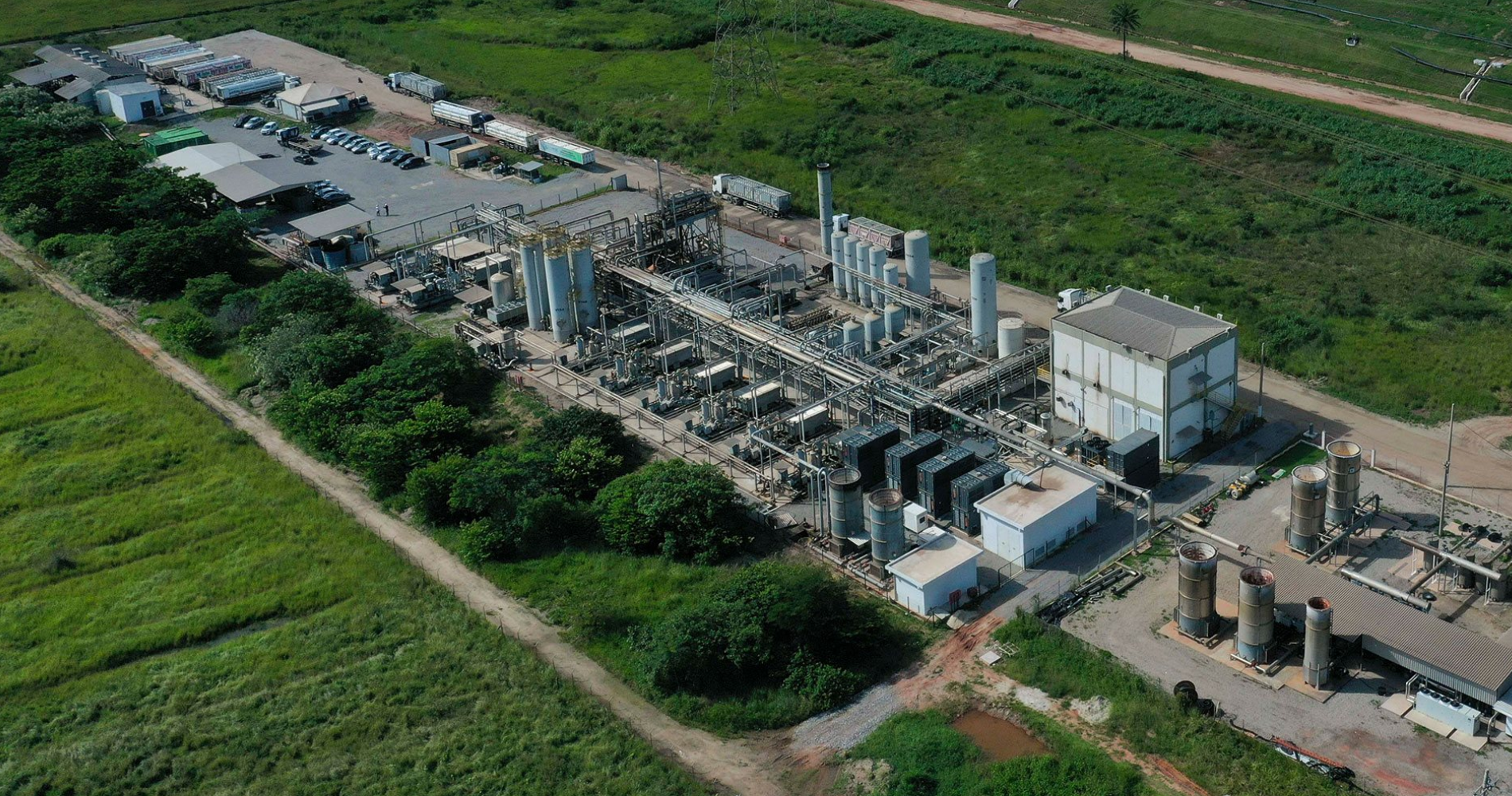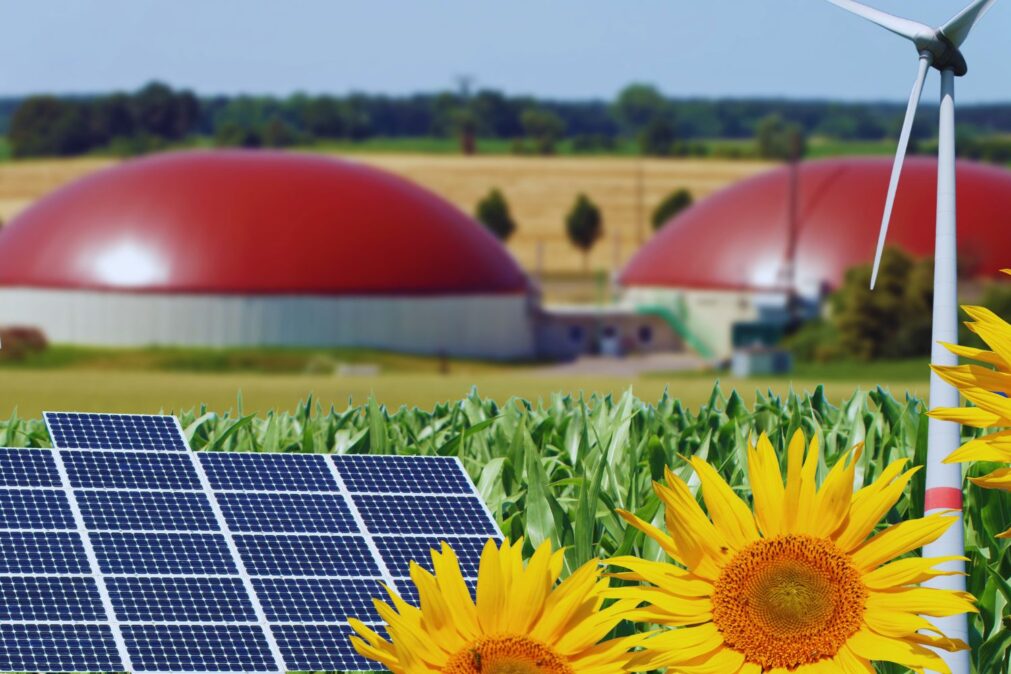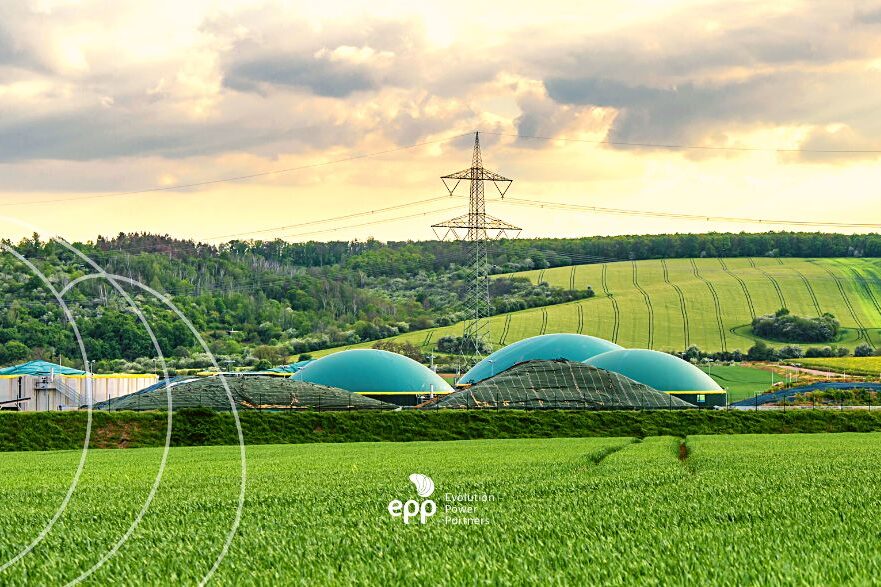As the world continues its pursuit of cleaner and more sustainable alternatives to our reliance on fossil fuels, one potential candidate that has been standing out is biomethane. Originating from the decomposition of organic matter, such as agricultural waste and landfills, biomethane represents a renewable energy source with significant potential in reducing greenhouse gases.
Biomethane: What is it and why is it important?
Biomethane is a form of purified biogas, composed mainly of methane and carbon dioxide. The process of obtaining biomethane involves the treatment and purification of biogas, turning it into a product that has the same quality as natural gas, allowing its use in a variety of applications, including power generation, heating, and fuel for transport.
In the context of RenovaBio, a Brazilian program aimed at expanding the production of biofuels in Brazil, biomethane is a crucial piece for the decarbonization of the energy matrix. It fits as an alternative to fossil fuels, contributing to the reduction of greenhouse gas emissions.
Increased Investment and Government Support
Recently, the federal government created credit lines for the biomethane market and instituted the concept of “methane credit”, with the aim of encouraging investments in the sector. These initiatives were launched on Monday, March 21, 2022, along with the inclusion of biofuel in the tax incentive regime for infrastructure projects, Reidi.
An example of the positive impact of these measures can be observed in Gás Verde, a company that produces about 130,000 m3/day of biomethane at the Seropédica landfill. With a plan to invest around R$ 500 million in 2023, the company seeks to expand its production further, with the expectation of reaching up to 400,000 m3/day in the second half of 2024.
In addition, Gás Verde is also focusing commercial efforts on finding customers, with contracts already closed with Ternium and Ambev, which managed to reduce its emissions at the Cachoeiras de Macacu (RJ) factory by more than 80%, thanks to the use of biomethane.
Advantages and Disadvantages of Biomethane
Disadvantages
Among the main ones is the high initial cost for the installation of the necessary infrastructure for the production and use of biomethane. In addition, large-scale production of biomethane requires the availability of large amounts of organic matter.
Advantages of Biomethane
Biomethane has several advantages, especially when we consider its contribution to the environment and the economy. Here are some of the main ones:
1. Reduction of Greenhouse Gas Emissions
Biomethane is produced from the decomposition of organic waste, a process that, without intervention, would release methane, a potent greenhouse gas, directly into the atmosphere. By capturing this methane for the production of biomethane, we significantly reduce greenhouse gas emissions. When used as fuel, biomethane only emits the carbon dioxide that was originally captured by the organic matter during its growth, making the life cycle of biomethane almost carbon-neutral.
2. Contribution to the Circular Economy
Biomethane transforms what were once considered waste, into a valuable energy source. This transformation of “trash” into energy is a perfect example of the circular economy, where waste is seen as resources and reintegrated into the economic cycle.
3. Source of Renewable Energy
Unlike fossil fuels, which are limited and take millions of years to form, biomethane is a source of renewable energy. It is produced continuously as organic materials decompose and can be generated from a variety of sources, such as agricultural, residential, and industrial waste.
4. Diversification of the Energy Matrix
Biomethane contributes to the diversification of the energy matrix, reducing dependence on non-renewable energy sources and increasing energy security. As it is compatible with existing natural gas infrastructure, it can be easily integrated into the energy system.
5. Rural Development and Job Creation
Biomethane production can bring socio-economic benefits, particularly to rural areas. It can generate jobs, both directly in biomethane production and indirectly in activities related to waste collection and processing. In addition, rural producers can generate additional income by selling agricultural waste for biomethane production.
6. Contribution to the Decarbonization of the Transport Sector
Biomethane can be used as fuel for vehicles, contributing to the decarbonization of the transport sector. It has a quality similar to that of natural gas for vehicles (NGV), but with a significantly smaller carbon footprint.
In summary, biomethane presents itself as a promising and sustainable alternative to the replacement of fossil fuels. Despite the initial challenge that involves the installation of the necessary infrastructure for its production and use, the potential benefits are considerable.
Government support is crucial for the advancement and consolidation of this market. Initiatives such as those adopted by the Brazilian government, which include the creation of specific credit lines for biomethane and the insertion of this biofuel in the tax incentive regime, are essential to stimulate investments and development in this sector.






